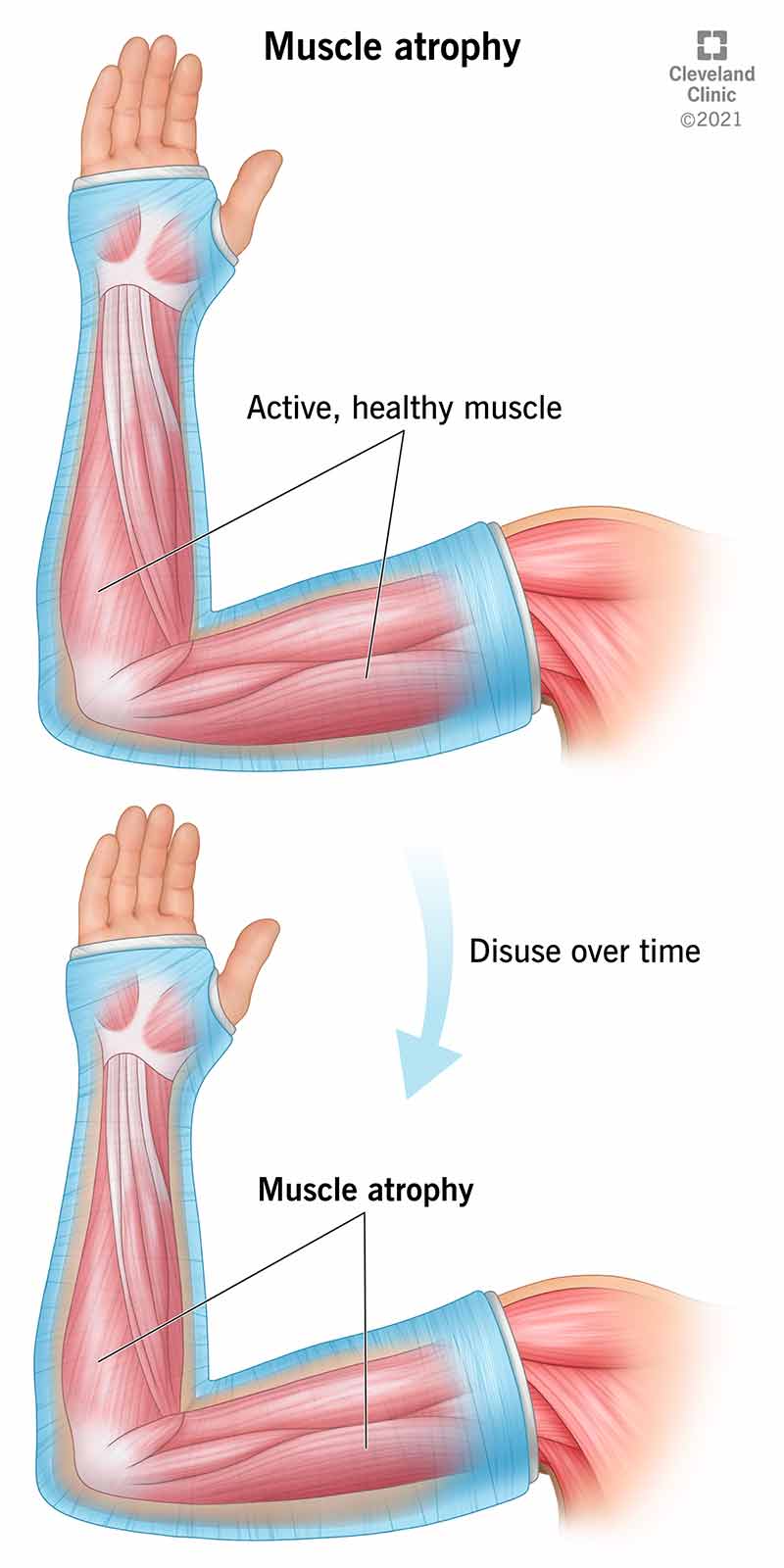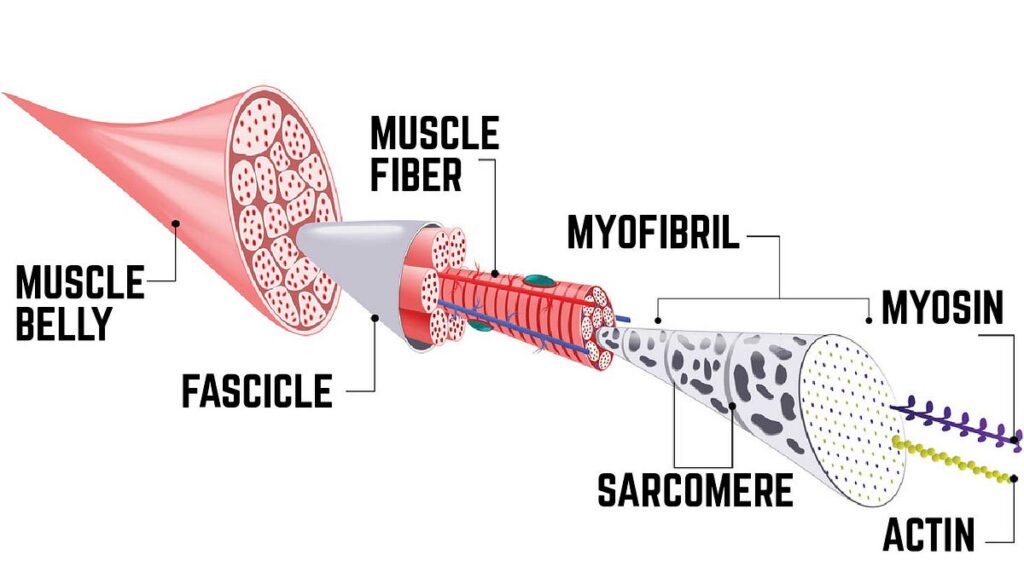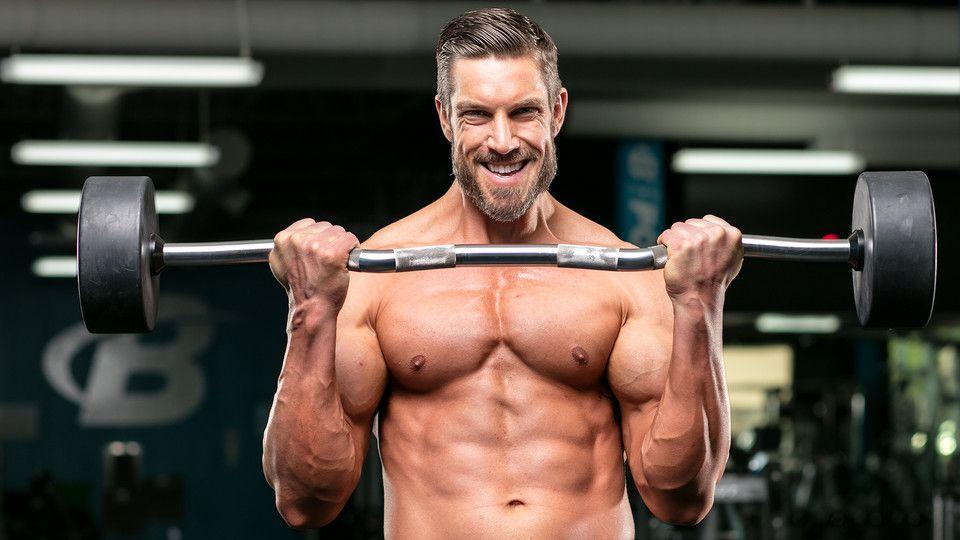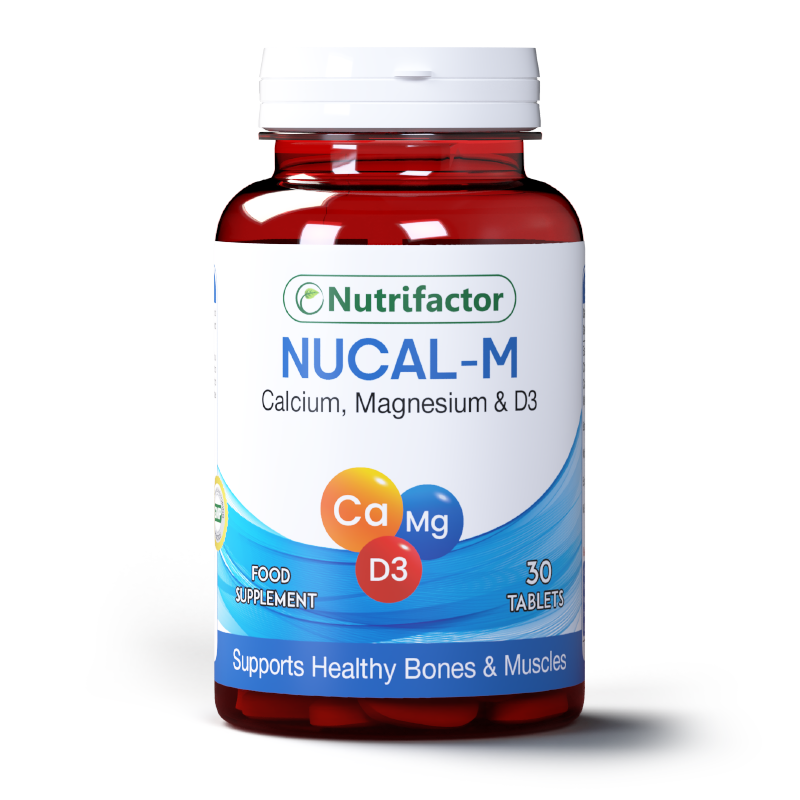Muscle growth works through mechanical tension, muscle damage, and metabolic stress. These factors stimulate muscle fibers to repair and grow.
Muscle growth, also known as hypertrophy, occurs when muscle fibers sustain minor damage during intense physical activity. The body repairs these fibers by fusing them, increasing their mass and size. This process is driven by a combination of mechanical tension, muscle damage, and metabolic stress.
Progressive overload, which involves gradually increasing the weight or resistance, plays a crucial role in stimulating muscle growth. Proper nutrition, especially protein intake, and adequate rest also support muscle repair and growth. Consistency in training and recovery is essential for achieving optimal results. Understanding these principles helps individuals design effective workout routines for muscle gain.
Muscle Fiber Types
Slow-twitch fibers are great for endurance activities. These fibers help in long-distance running. They do not grow as large as fast-twitch fibers. Slow-twitch fibers use oxygen to make energy. This makes them perfect for long exercises.
Fast-twitch fibers are better for quick bursts of energy. These fibers help in sprinting and weightlifting. They grow larger and stronger than slow-twitch fibers. Fast-twitch fibers tire out quickly but are very powerful.
Both types of fibers play a role in muscle growth. Slow-twitch fibers grow with endurance training. This includes activities like running and cycling. They improve muscle stamina.
Fast-twitch fibers grow with strength training. This includes activities like lifting weights and sprinting. They increase muscle size and power. Both fiber types are important for balanced muscle growth.

Credit: www.healthline.com
Hypertrophy Explained
Hypertrophy means muscle growth. There are two main types: myofibrillar and sarcoplasmic. Myofibrillar hypertrophy increases muscle strength. Sarcoplasmic hypertrophy increases muscle size. Both types are important for overall muscle development.
Nutrition plays a big role. Eating enough protein helps muscles grow. Rest is also important. Muscles need time to repair and grow. Exercise intensity affects growth too. Lifting heavy weights can boost hypertrophy. Consistency in workouts helps muscles adapt and grow.
Hormonal Influence
Testosterone is a key hormone for muscle growth. It helps muscles get bigger and stronger. This hormone increases protein synthesis. Protein is important for muscle repair and growth. Testosterone also reduces body fat. Lower fat levels show more muscle. Both men and women have testosterone. Men have higher levels of it. This is why men build muscle faster.
Growth hormone helps muscles grow by increasing cell growth. It also helps the body burn fat. This hormone repairs muscle tissues after exercise. More growth hormone means better recovery. It also boosts the immune system. A strong immune system keeps the body healthy. Growth hormone works well with testosterone. Together, they make muscles bigger and stronger.
Nutritional Requirements
Muscles need protein to grow. Protein helps repair muscle fibers. Eat protein-rich foods like chicken, fish, and beans. Aim for about 1 gram of protein per pound of body weight. Protein shakes can also help. Spread protein intake throughout the day.
A good balance of carbs, fats, and proteins is key. Carbs provide energy for workouts. Fats help in hormone production. Proteins repair and build muscles. Eat a mix of vegetables, fruits, grains, and lean meats. This helps your body stay strong and healthy.
Training Techniques
Resistance training helps build muscle strength. Using weights or resistance bands can make muscles work harder. Muscles grow by repairing tiny tears caused by these exercises. This process makes muscles stronger and bigger over time.
Progressive overload is key to muscle growth. Gradually increase the weight or resistance. This challenges muscles and helps them grow. Track progress to ensure continuous improvement. Small increases in weight or reps can make a big difference. Consistency is crucial for effective muscle growth.

Credit: www.factoryweights.co.uk
Rest And Recovery
Sleep is essential for muscle growth. Muscles repair and grow during sleep. Deep sleep stages are crucial. They help release growth hormones. Aim for 7-9 hours of sleep each night. This ensures optimal recovery. Poor sleep affects muscle repair. It also impacts performance. Good sleep improves mood and energy. It helps you train harder the next day.
Active recovery speeds up healing. Light activities help muscles. Walking, stretching, and yoga are great choices. They increase blood flow. This brings nutrients to muscles. It helps remove waste products. Active recovery reduces muscle soreness. It also prevents injuries. Try to include it in your routine. Doing so will enhance overall muscle growth.
Genetic Factors
DNA plays a big role in muscle growth. Some people have genes that help them build muscle fast. These genes tell the body to make more muscle fibers. Muscle fibers are tiny parts of muscles. More fibers mean bigger muscles.
Genes also control how well muscles heal. Quick healing helps muscles grow stronger. Proteins in the body help with healing. Some people make more of these proteins. They can get stronger faster.
Everyone’s body is different. Some people build muscle easily. Others need more time and effort. This is due to individual variability. Different bodies respond in different ways.
Diet and exercise plans work better for some people. This depends on their genes. Genes can affect energy levels and recovery times. Knowing your body helps in planning workouts.

Credit: my.clevelandclinic.org
Supplements And Aids
Protein powders help repair and build muscles. Creatine boosts energy and strength. BCAAs reduce muscle soreness. Glutamine helps with muscle recovery. Fish oil reduces inflammation. Multivitamins support overall health. Caffeine increases focus and endurance. Pre-workout formulas enhance performance.
Protein is very effective. Creatine shows fast results. BCAAs work well for recovery. Glutamine helps after tough workouts. Fish oil has many health benefits. Multivitamins are good for daily health. Caffeine is great for quick energy. Pre-workout formulas give a boost before exercise.
Frequently Asked Questions
What Triggers Muscle Growth?
Muscle growth is triggered by resistance training. It causes microscopic damage to muscle fibers. This prompts the body to repair and strengthen them. Consistent training leads to increased muscle mass.
How Do Muscles Repair And Grow?
Muscles repair and grow through a process called muscle hypertrophy. After exercise, the body repairs damaged muscle fibers. It fuses them together, increasing their mass and size. Nutrition and rest are crucial.
What Role Does Protein Play In Muscle Growth?
Protein is essential for muscle growth. It provides the building blocks, amino acids, needed for muscle repair. Consuming adequate protein helps in faster recovery and muscle mass increase.
Why Is Rest Important For Muscle Growth?
Rest is crucial for muscle growth. During rest, the body repairs damaged muscle fibers. This leads to muscle hypertrophy. Lack of rest can hinder muscle recovery and growth.
Conclusion
Understanding muscle growth involves exercise, nutrition, and rest. This trio helps build strength and improve health. Consistency and dedication are key. With the right approach, you can achieve your fitness goals. Unlock your potential by prioritizing muscle growth in your routine.
Your body will thank you for it.











